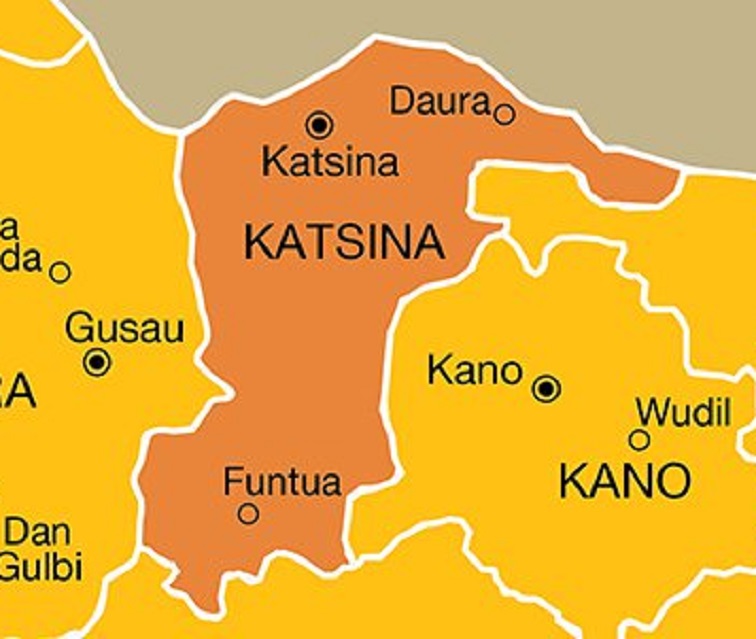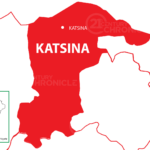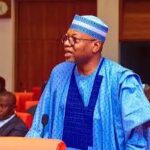I have always been intrigued by Katsina College, the first institution of higher learning in Northern Nigeria and by far the most crucial education system designed to train teachers and spread the new educational policies of the British administrators. Needless to say, the college was instrumental to breeding some of Nigeria’s finest leaders and Northern Nigeria’s torchbearers until in 1938 when the college was moved to Kaduna and subsequently Zaria. My intrigue would only be piqued when I came across the gazetted speech of the Governor-General of Nigeria at the time.
On the 5th of March 1922, Sir Hugh Clifford opened Katsina College. In his speech that day, he mentioned the suitability of Katsina, for the tedious project of providing teachers for all of Northern Nigeria. Sir Clifford attached great importance to this school and had deliberately selected Katsina as its home. In his heartfelt speech that day, he said: “It was necessary to select some place at which to establish the College; and it was for two reasons that I selected Katsina as the most appropriate place for the purpose.”
“The first of these reasons is that Katsina in ancient days was held in high repute throughout the Northern Emirates as a seat of learning and of piety, and it is good, I think that this tradition should be perpetuated. My second reason was that Katsina, though it is an important town and the administrative capital of an important Emirate, it is not as yet so close to the railway and to the commercial centres of Nigeria as to make it unsuitable for that quiet and tranquillity and that freedom from distractions, which are so necessary for young men who are devoting their lives to study.”
My observation is that even in the 1920s, Katsina and by extension, the north was declining. Some of this decline was in fact caused by colonialism and its effects on the region’s already well established multi-ethnic cultures and its Islamic scholarship. There was a need to adapt to the new scholarship and culture brought by the British. The rest, as they say, is history.
Towards the beginning of the millennium, a new wind of change began blowing, one brought about by globalisation and not colonisation. In 2012, 90 years after Sir Clifford’s speech, I had a fleeting idea to set up something in Katsina that will have a similar effect in the nation as did the famous Katsina College. In katsina, pretty much the same conditions that influenced Sir Clifford’s decision were still obtainable; it maintained its heritage as a learning citadel of old, and it is still conducive for intellectual pursuit because it is geographically removed from the chaos of the commercial buzz of Kano and the central-hub activities of Kaduna among other neighbours. Katsina is still an unperturbed place if you want to unplug from the distractions of Nigeria. However, rather than the answer to an educational need, my idea involved catering for a technological need.
When I originally thought of this, I was about to begin my masters in Creative Technology and the world was such a different, magical place. In the last three decades, of the nine since Katsina College was established, the world had literally moved online. You had an instant connection to friends and family wherever they were on the globe. You could get instant, customisable news as it happens whenever you want it. You could watch movies from a device that fits into your pocket. You can navigate any city with accurate, zoomable 3D maps of the city. You have access to an infinite encyclopaedia that’s updated every second. You can also buy from a virtual store anything you want and get it delivered within three days.
My departure from the idea of an educational institution, as was done in the 1920s, was deliberate, not because access to quality education is universal 90 years after Katsina College, far from that. There are still huge gaps to be filled in the educational sector even today. However, there were also great wins in terms of basic access to education and technology. I thought since the economy was largely agricultural not only in Katsina but the entire region, why not set-up an agricultural centre of excellence that utilises cutting edge technologies, equip young people with unique skills and bring together the resources and networks to catalyse the transformation of Nigeria’s agriculture. I harboured and developed my ideas regarding this monumental undertaking and in 2017, after explaining this concept to Governor Masari of Katsina, I found myself before the Katsina State Executive Council, explaining and advocating for the set-up of the Katsina Sustainable Platform for Agriculture.
The project kicked off in 2019 and is currently ongoing including a state-of-the-art data centre, training and administrative facilities and above all digital extension facilities. Fashioned like the Agricultural Transformation Agency in Ethiopia and other outfits like it in Asia, The Katsina Sustainable Platform for Agriculture (KASPA) is aimed at creating and connecting sustainable agricultural value chains and using digital technologies to help farmers improve yields and access markets. The holistic and farmer-centric approach of KASPA makes it the first of its kind in sub-Saharan Africa and my hope is that it rivals and goes beyond the transformational impact of institutions like the old Katsina College.
Now more than ever as we are plagued by insecurity and youth unemployment, our investments in agriculture need to be smart, sustainable and rooted in the future while looking at the past and in full cognisance of present constraints.

 Join Daily Trust WhatsApp Community For Quick Access To News and Happenings Around You.
Join Daily Trust WhatsApp Community For Quick Access To News and Happenings Around You.


